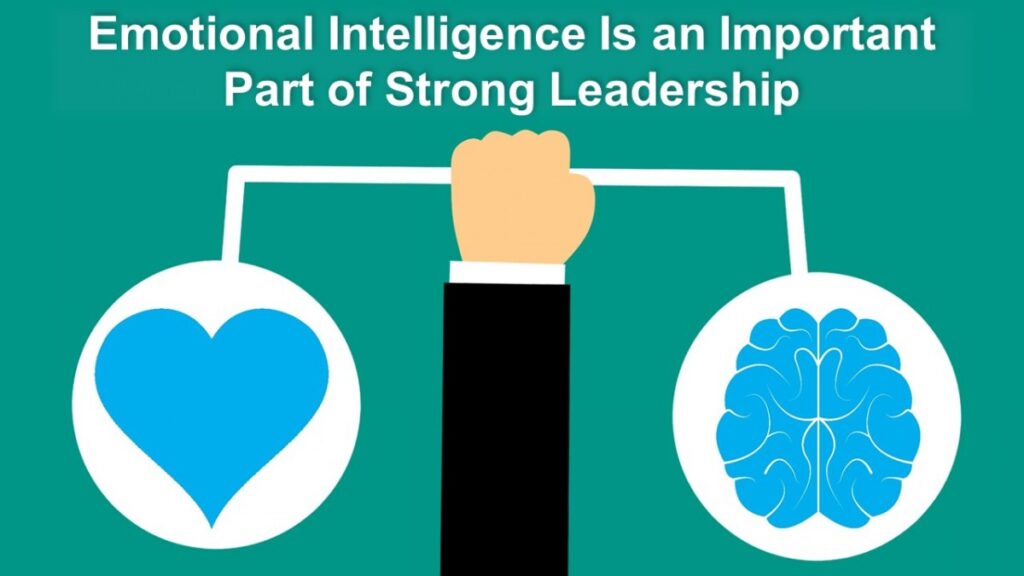In today’s fast-paced business environment, the role of a leader extends beyond strategic thinking and decision-making. Emotional intelligence (EI), often described as the ability to recognize, understand, and manage one’s own emotions and those of others, has become a critical factor in effective leadership. As businesses evolve and face new challenges, leaders equipped with high emotional intelligence are increasingly seen as essential for fostering healthy work environments, enhancing employee engagement, and driving organizational success.
Understanding Emotional Intelligence
Emotional intelligence can be broken down into four key components:
- Self-Awareness: This is the ability to recognize one’s emotions and their effects on thoughts and behavior. Self-aware leaders are conscious of their strengths and weaknesses and how these affect their interactions with others.
- Self-Regulation: This component involves controlling or redirecting disruptive emotions and impulses. Leaders who can self-regulate are less likely to make impulsive decisions or say things they might regret. This is especially important in a branding and communications agency, where client relationships and team dynamics can be sensitive and complex. The ability to remain calm and composed under pressure can prevent conflicts and foster a more respectful and trusting work environment.
- Social Awareness: This refers to the ability to understand the emotions, needs, and concerns of other people, pick up on emotional cues, feel comfortable socially, and recognize the dynamics in a group or organization. Socially aware leaders are empathetic and capable of building strong relationships.
- Relationship Management: This involves the ability to inspire, influence, and develop others while managing conflict. Leaders who excel in relationship management build trust, foster teamwork, and maintain healthy professional relationships.
The Impact of Emotional Intelligence on Leadership
Leaders with high emotional intelligence are often more successful in guiding their teams toward achieving business goals. Here are several ways in which EI impacts leadership:
- Improved Communication and Collaboration
Emotional intelligence plays a crucial role in effective communication. Leaders who are emotionally intelligent are more attuned to the emotions and motivations of their team members. They listen actively, show empathy, and respond appropriately to the concerns of others. This creates an environment of trust and openness, where employees feel heard and valued. Such an environment promotes collaboration, as team members are more likely to share ideas and work together harmoniously when they feel understood and respected. - Enhanced Decision-Making
Leaders with high emotional intelligence are better equipped to make sound decisions. They are less likely to be clouded by their own emotions and more capable of considering the perspectives and emotions of others. This balanced approach helps in assessing situations objectively and making decisions that are in the best interest of the team and the organization. Additionally, these leaders are adept at managing stress, which enables them to think clearly and make decisions under pressure. - Conflict Resolution
Conflict is an inevitable part of any workplace. However, how it is managed can significantly impact the organization’s culture and productivity. Leaders with strong emotional intelligence are skilled at navigating conflicts. They can identify the underlying emotions and issues that contribute to conflicts and work towards resolving them constructively. By addressing conflicts early and effectively, emotionally intelligent leaders prevent them from escalating and causing disruption within the team. - Boosting Employee Morale and Retention
A leader’s emotional intelligence directly influences employee morale and job satisfaction. Leaders who are empathetic and supportive create a positive work environment where employees feel valued and appreciated. This, in turn, boosts morale and increases employee engagement. When employees feel emotionally connected to their leaders and the organization, they are more likely to stay committed and motivated, reducing turnover rates. As a result, the organization benefits from retaining talented individuals and maintaining continuity in operations. - Fostering Innovation and Creativity
Emotionally intelligent leaders encourage a culture of innovation by creating a safe space for employees to express their ideas and take calculated risks. They recognize and nurture the unique strengths of each team member, fostering an environment where creativity can thrive. By being open to new perspectives and valuing diverse opinions, these leaders inspire their teams to think outside the box and contribute innovative solutions that drive the organization forward.
Implementing Emotional Intelligence in Business Leadership
Leaders can develop and strengthen their emotional intelligence through practice and self-awareness. Here are some strategies to enhance EI in leadership:
- Seek Feedback: Leaders should regularly seek feedback from their peers, subordinates, and mentors to gain insights into their behavior and its impact on others. Constructive feedback helps identify areas for improvement and promotes personal growth.
- Practice Mindfulness: Mindfulness techniques, such as meditation and reflection, can help leaders become more aware of their emotions and reactions. By practicing mindfulness, leaders can better manage stress and respond to challenges with a clear and calm mind.
- Develop Empathy: To enhance empathy, leaders should actively listen to their team members, ask open-ended questions, and try to understand their perspectives. By showing genuine interest in others’ feelings and concerns, leaders can build stronger, more meaningful relationships.
- Invest in Training: Organizations can provide emotional intelligence training programs to help leaders and employees develop these critical skills. Training can include workshops, coaching sessions, and resources that focus on building self-awareness, empathy, and effective communication.
Conclusion
The power of emotional intelligence in business leadership cannot be overstated. As organizations face increasing complexity and change, leaders who possess strong emotional intelligence are better equipped to guide their teams through challenges and drive success. By fostering a culture of empathy, open communication, and collaboration, emotionally intelligent leaders not only enhance employee engagement and satisfaction but also contribute to the overall growth and success of the organization. For a branding agency, the role of emotional intelligence is even more pronounced, as it directly impacts the quality of client relationships, team dynamics, and the ability to deliver exceptional branding agency services.
Whether you’re running a small business or leading a team in a large corporation, investing in emotional intelligence is a strategic move that can set your organization apart.







